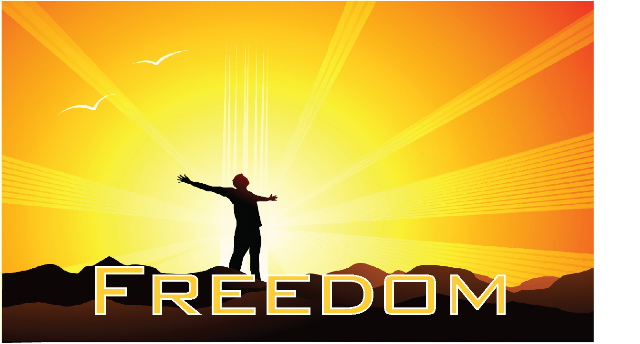It may appear to be a paradox in words but this is what the fact is. Reason and good sense stand to prove this dictum.
To start with let us first understand and comprehend the real meaning of ‘freedom‘. Freedom means not, as many would be misled to believe, to do whatever one wants to, in whatever manner at whatever time.
Can anyone — ‘the protagonist of the freedom of self, snatch away from another his right to freedom?
ADVERTISEMENTS:
Never can this be, never can this happen. Man is a social being and because he lives in a society, he shall have to bind himself down to certain social ‘norms’ certain social codes of behaviour. He is responsible and answerable to the society and he cannot be seen by detaching himself from the social context or the social system or as an individual away and apart from the social assembly.
He can enjoy his freedom only to that extent whereby he is not infringing upon the freedom of the members of the society. He cannot mistake liberty for license.
Freedom has to go on within certain bounds; it shall have to work within the ambit of certain rules — rules which the society and its individual members themselves make and prescribe.
One cannot murder somebody only because one wants it or the other one is not acting to one likes. One cannot commit a theft in anybody’s house out of his free will. If he does so law is there to take its own course and he shall be bound by law.
ADVERTISEMENTS:
Therefore in trying to indulge in freedom one will have to take into consideration the freedom guaranteed to others and it is this consideration from where the limit to freedom starts.
Limits are by themselves the symbol and the synonym of bondage. Bound within the bounds of rules and discipline, how can we call ourselves ‘free’; how can we say that freedom frees us from all bounds. Actually it by itself fetters us within the confines of rules and regulations.
So when freedom itself is not free, how can it grant freedom to us?
ADVERTISEMENTS:
The only basic difference between bondage and bounds is that bondage is imposed upon us by some external body while bounds are the creation of our own conscience.
As man enters into the realm of reason and thought and gets enlightened from the dark alleys of ignorance, he, by himself, imposes inhibitions on his instinctive physical thoughts and behaviour, Murray Compton has said, ‘Every individual has within him a very ferocious leopard and every such person who advances towards self-realization and wins the credit end recognition from his peers, is the one who can tame that leopard the quickest and confine him in a strong cage the earliest’.
What is meant to be said is that as a man attains the realization of his rational thinking, he by and by makes a conscious effort to suppress and control his carnal instincts like hunger or sexual urge. If he is not able to entirely eliminate them, he at least tries his best to control them.
In this way, while on one hand he aspires for a freedom of thought and for a rational openness, on the other, by his own efforts, binds himself down in inhibitions and thus confines himself within the walls of right social conduct. If the winning over of one freedom takes away from you another freedom, how would you call yourself free? You have put yourself in bondage by your own self.
We talk high over political freedom, but can any political freedom, grant us complete freedom — total independence. We oppose a system, we feel restive being under it, we want to revolt against it and so much wish to overthrow it — and for these we choose and find our arguments.
But after being successful in our efforts and having been able to overthrow the previous system, do we not make fresh regulations to regulate our social and political life. If we do that, and we do it all right, as no society can exist and function without rules; we have overthrown something to over burden ourselves with another.
Does this new system not bind you down again? India became free on August 15, 1947; we overthrew the British domination but soon after formed a constituent assembly to draw up a constitution for free India and accepted it to be worked upon and us to work under it from January 26, 1950.
The most important point and the point of the greatest consequence is that we, as human beings, cannot exist without rules, cannot exist without responsibilities, in whatever field we be, in whatever sphere we might work. There would be limits and limits at every step which cannot be crossed with impunity.
Therefore we have to accept that ‘freedom is our greatest bondage’.

